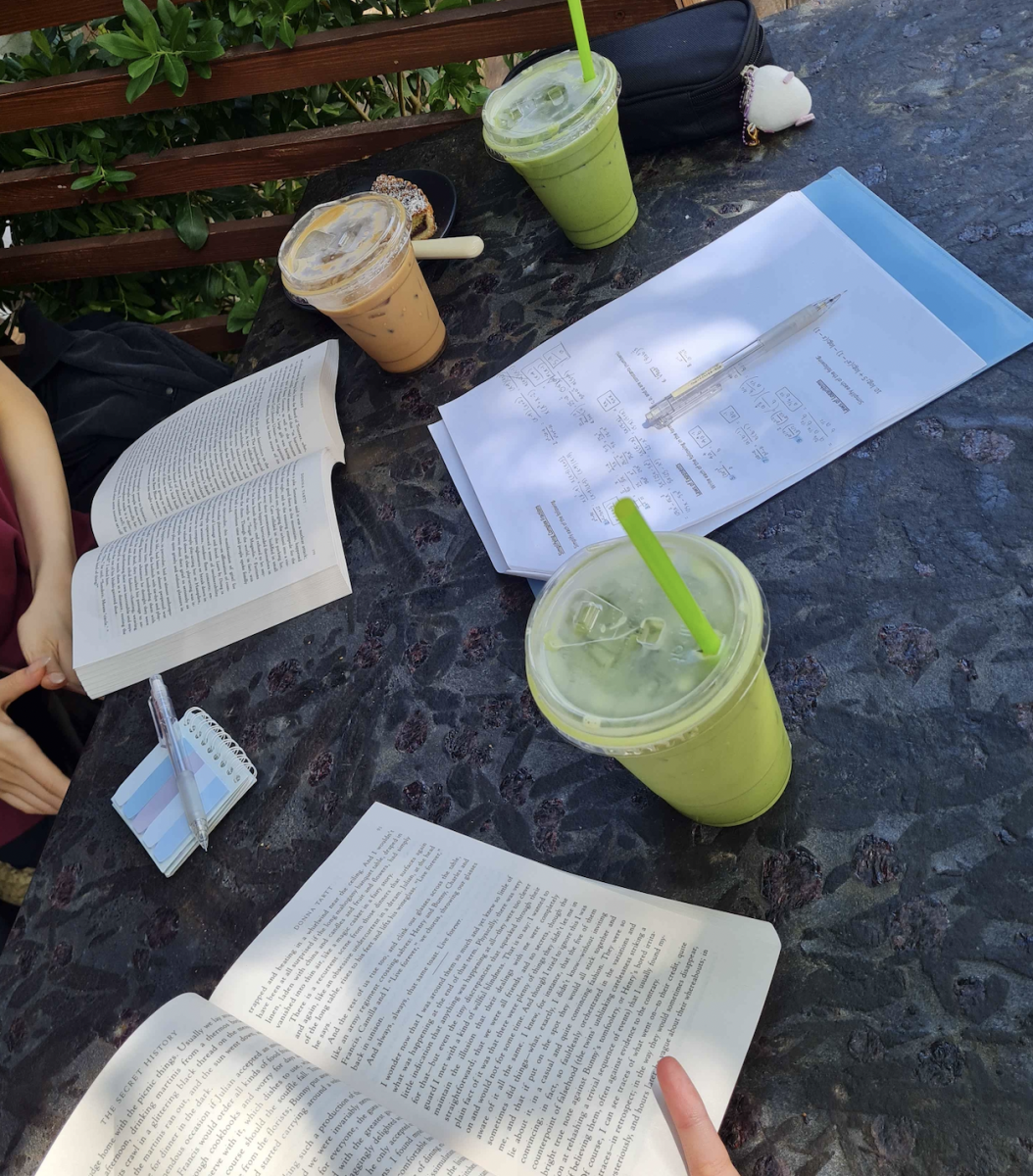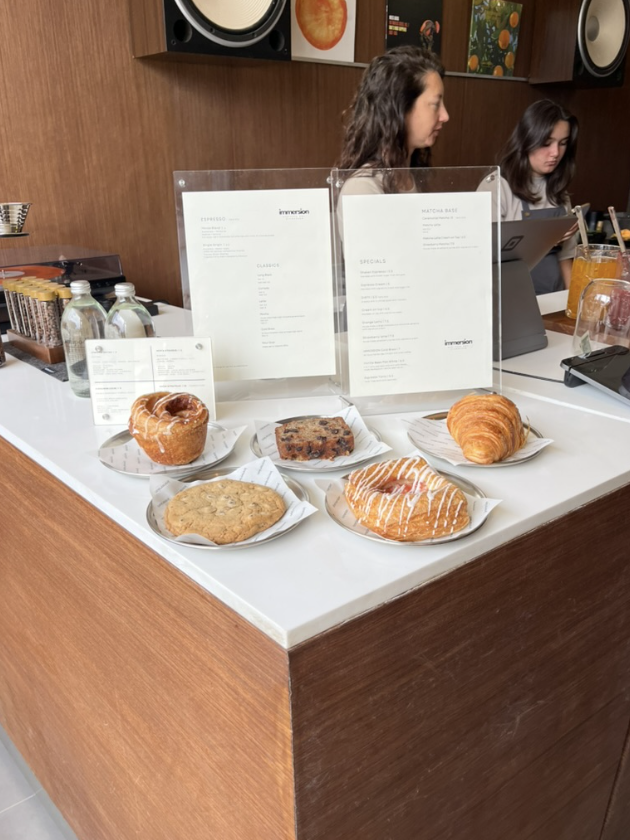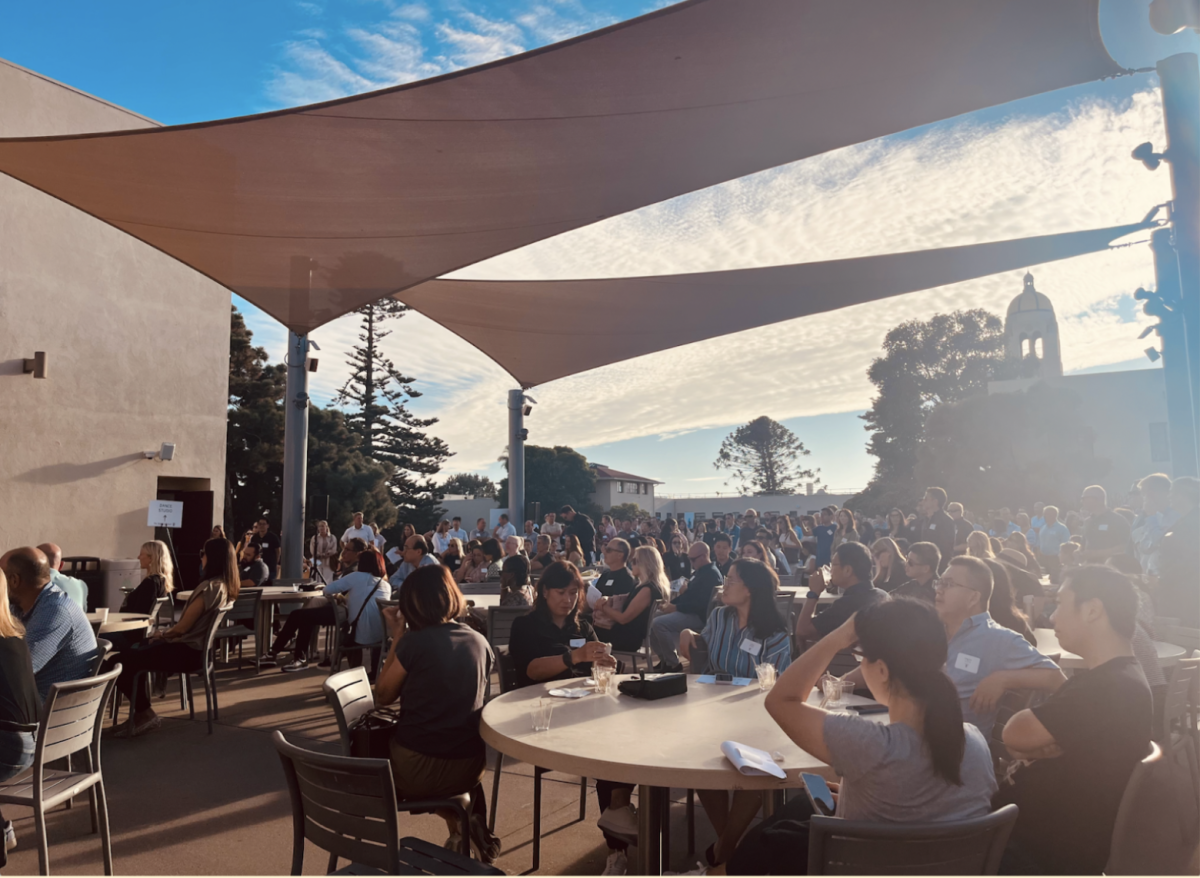It’s Friday night, and a long awaited weekend stretches out before you. The group chat buzzes with texts asking to hangout, and, as your friends are deciding where to go, one thought lingers in the back of your mind: Monday’s math test.
A debate races through your mind, and ultimately, one conclusion emerges: no matter what you decide on, you will be thinking about the other choice instead of being focused in the present — you will either have less motivation to study, or your supposedly relaxing day will become stressful.
FoMO, or Fear of Missing Out, stands behind these conflicting thoughts. Cleveland Clinic defines FoMO as the feeling or perception that other people are having fun, experiencing new things or living a better life than you. “A better life” can be interpreted in different ways, but, for students, Caleb Tang (‘26) explained, it comes down to two main definitions: socially, such as hanging out with friends, or academically, such as achieving greater academic success.
FoMO in both an academic and social sense rests on external pressure, but this pressure presents itself in different ways. In an academic sense, FoMO is less about missing out on hangouts, but more of feeling like others are being more productive than you. Abigail Wei (‘26) explained, “Seeing others get good grades, internships, or awards can make me feel like I’m not doing enough or that I’m falling behind.” Luming Wang (‘27) added, “I feel like as a student, especially at Bishop’s, you will compare yourself to others at some point… when I see someone who is really good at something, I want to be like them.”
Socially, FoMO’s primary characteristic is the desire to stay connected to others. Abigail explained, “missing out on a group hangout, a concert, or a birthday party can make me feel like I’ve lost a chance to bond or create memories. These moments feel unique and irreplaceable, and it’s hard to not think that I’ve missed something fun or important.”
Chloe Chereque (‘26) reflected that even at school, FoMO rests behind choosing what sports to play, and what classes to take. She said, “I don’t know if that necessarily has insecurity tied to it, but you don’t want to miss out on things that other people are doing.”
FoMO often pushes students to prioritize social opportunities over academic obligations, even while it might lead to stress later on. Olivia Alexander (‘25) explained, “recently, a few of my friends invited me over when I knew I had a project to get done. I ended up hanging out and then bum-rushing the essay until late into the night cause I didn’t wanna miss out on the hangout.”
Alex Yang (‘27) explained, “A lot of the time after soccer games for my club, some of my friends like to hang out and go grab lunch or something. But sometimes it’s hard for me because I have to balance the want to hang out with them and the need to do schoolwork. Going out to hang out with friends makes it a lot harder to find time for schoolwork.”
However, today, more than ever, people are exposed to what others are doing and faced with continuous uncertainty about whether they are doing enough or whether they’re doing it right. Balancing academic and social lives is already difficult, and deciding which to prioritize can become even harder with influence from what others are choosing. FoMO is even more pervasive at Bishop’s because of the student body’s strong emphasis on academic success. Emma Liu (‘27) explained, “There’s always that ever-present voice in your head that tells you that whatever [others] are doing without you is infinitely better than what you could be doing.”
This internal dialogue is only magnified by social media. Social media makes the decision-making process harder, Abigail explained, “because you can constantly see what you missed, and it’s easy to feel like you’re being left out. FoMO can overshadow the responsible choice.”

FoMO shapes not just students’ decisions but also their ability to stay mentally present in either choice. A study published by the National Institute of Health explained that FoMO can lead to “anxiety, interrupted sleep, and lack of concentration.” These consequences from FoMO can manifest themselves in daily activities — like the inability to focus when you chose your math test over hanging out with friends. Sydney explained, “if I’m stressed out I’ll just reach for my phone…I very often distract myself from stress by going on social media.”
Because students have an extremely limited amount of time, Chloe Chereque (‘26) explained, students should focus on setting their priorities straight. Despite the pervasive nature of FoMO, students have been able to find a way to balance their academic and social lives.
Sydney Mafong (‘26) explained that on homecoming weekend this year, Bishbowl was on Friday night, the October SAT was on Saturday morning, Homecoming was on Saturday night, and the PSAT was on Monday morning. “I made a compromise with myself,” Sydney said. On Friday, she stayed for a few hours after school to participate in the Bishbowl activities and although she didn’t go to homecoming, made the most out of her homecoming week by engaging in the spirit week free dresses and lunchtime activities.
Abigail explained that if she has an assessment she feels unprepared for, she focuses on studying before spending time with friends. However, she added, “If I realize I haven’t been spending time with [my friends] as much as I would’ve wanted, I make an effort to find time.” She added that sometimes she combines the two and studies with her friends. “This way, I can spend time with them while staying productive. Sometimes we can get distracted, but it helps me feel like I’m not sacrificing one for the other.
Chloe’s method is similar to Abigail’s: she finds a balance by planning out her weekend. She explained that if she had nothing going on for the entire weekend, she would give herself one day to relax. But if she had plans for Saturday and/or Sunday, then she would focus on setting her priorities straight. She said, “I do believe that every person should give themselves a break from working and have some fun in their day. But you need to have a good balance.”
Prioritization and balance are crucial to getting the best of these two worlds, but mindset is equally important. If you decide to stay home and study, don’t regret it. If you decide to hang out with your friends, have as much fun as you can. As Stanford University’s Student Affairs concluded, “Instead of thinking that you are missing out on an opportunity, you can reframe it as you making a different choice out of all the opportunities you were presented with.”








